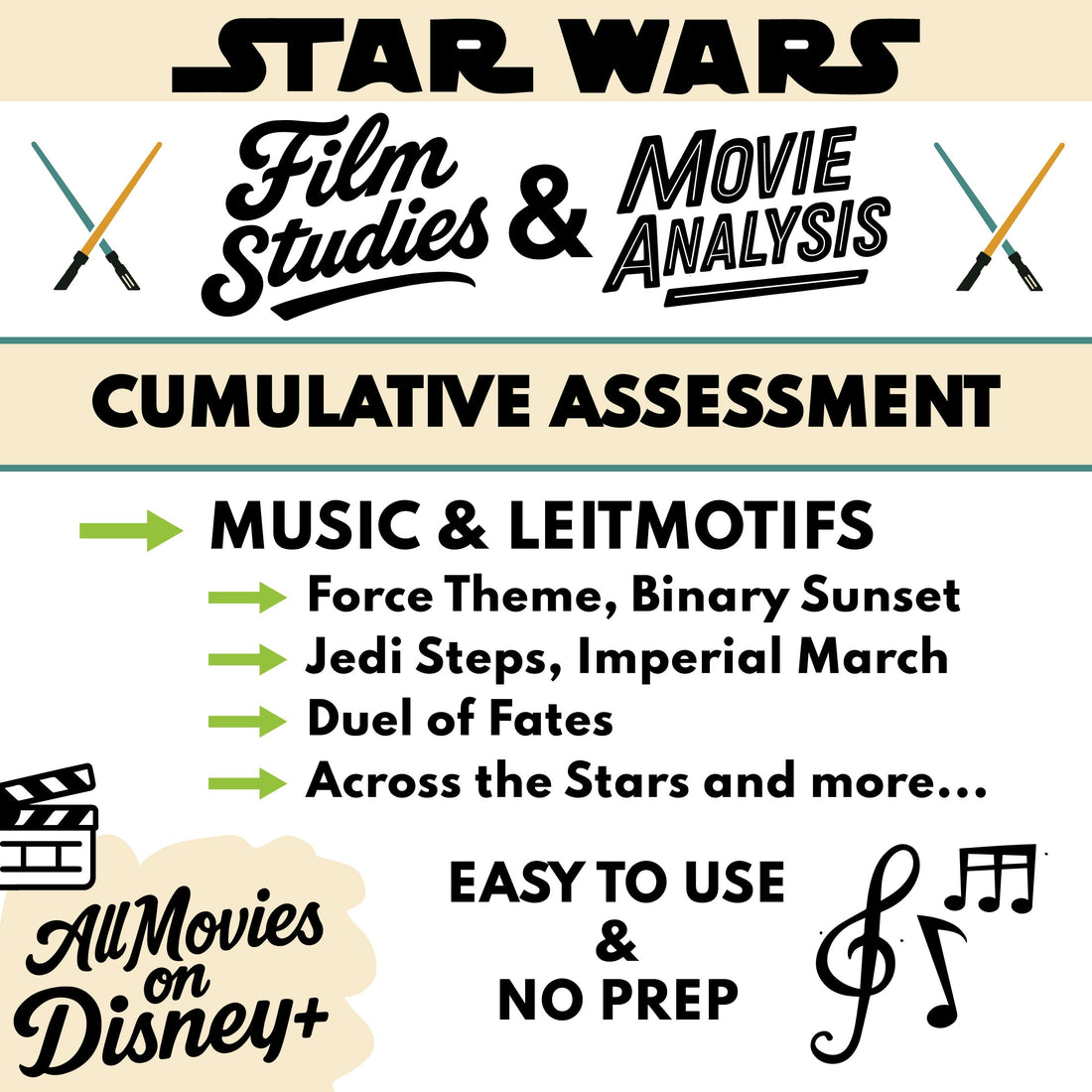
Using Music, Leitmotifs, and Cinematic Sound to Teach Star Wars
Share
The Star Wars Saga Assessment — Music & Leitmotifs Focus (Grades 9–12) offers a 9-week deep dive into how John Williams’s score builds meaning across the saga. Students track recurring motifs such as the Imperial March, Leia’s Theme, and Rey’s Theme, and then analyze how music shapes audience perception of character, conflict, and resolution. For a broader package, the Complete 9-Week Curriculum integrates this assessment with film guides and additional thematic extensions.
Standards Connection
Aligned to CCRA.R.1 (cite textual/audio evidence), CCRA.R.2 (determine themes), CCRA.SL.1 (discussion), and CCRA.W.2 (informative writing). These ensure that listening becomes evidence-based analysis rather than surface-level reaction.
Lesson Flow
- Focused listening: Students identify recurring leitmotifs associated with characters or conflicts.
- Evidence collection: Worksheets guide students to log timing, instrumentation, and scene context where motifs appear.
- Comparison: Learners contrast how motifs evolve across trilogies, e.g., Vader’s march vs. Kylo’s darker variation.
- Written response: Students compose short essays connecting music to story meaning and emotional impact.
Optional Extension (Teacher-Created)
Not included in the product PDF.
- Have students create visual motif maps linking characters to their associated themes.
- Assign a group presentation on how one leitmotif shifts over the saga.
Teacher FAQ
Q: Do I need musical training to use this assessment?
A: No. The resource provides clear prompts and sample responses so any teacher can facilitate discussion.
Q: Are audio clips required?
A: No, motifs can be studied directly from film scenes.
Q: Is there an answer key?
A: Yes, exemplar notes and model responses are included.
Related Star Wars classroom resources
- Star Wars Saga Assessment — Music & Leitmotifs Focus: study how recurring musical themes build meaning.
- Complete 9-Week Curriculum: combines music, cinematography, and science assessments with all nine guides.
- Episode V — The Empire Strikes Back Movie Guide: analyze the introduction of the Imperial March and its impact on Vader’s arc.
Skills Addressed: evidence-based listening, tracking motifs, connecting music to story, explanatory writing, collaborative discussion.